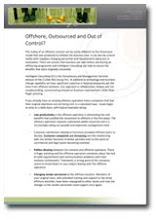With competition for job roles fiercer than ever, it’s no longer enough to just have a slick CV; they lack personality and fail to mention why you should be hired. This is what a cover letter is for!
Cover letters create a great first impression, are well constructed, grammatically flawless and support your CV. It’s your opportunity to display your most relevant skills and demonstrate your motivation and enthusiasm for the job and employer.
Your cover letter should be short and to the point. A maximum of five short paragraphs on a page should be enough to get your message across. It’s always tempting to write pages and pages but employers are more likely to be put off than impressed, they want a snapshot of who you are.
Before you put pen to paper, do your research. While it may be tempting to create a template cover letter for all applications, don’t; employers can spot a generic cover letter a country mile off - it’s essential that you tailor each one to the role. Find out what the company does, what work they’ve done, who their customers are; then convey what you know in your cover letter.
Beginning
Include the company’s address at the top of your cover letter, just as you would if you were sending a formal letter. Try and find the name and title of the person responsible for the role, this will make the letter far more personal and demonstrates your initiative.
Middle
The first paragraph or two should be about you. Tell the employer why you are well suited to the role, referring directly to the job description and concentrating on how you have the skills and abilities to excel. Mix evidence of relevant skills and knowledge with work experience examples and personal skills.
The next paragraph should explain why you are interested in the job and the company. What is it about the employer and job role that made you apply? This is your opportunity to target your cover letter so that the employer knows you are interested in their job and you’re not mass emailing ready-made CVs and cover letters to everyone under the sun.
End
The closing paragraph should be strong and clear. Reaffirm your suitability for the role and your enthusiasm about working for the company. State that you look forward to hearing from them and are happy to provide any further information.
Before you send anything, it’s a good idea to ask someone to read it over; it’s always useful getting a second opinion as they may think of good points that slipped your mind.
Finally, the last piece of advice is this….Don’t give up! Employers are often inundated with applications so don’t be disheartened if they don’t get back to you, it’s almost certain this will happen but the key thing is to stay proactive.








No comments:
Post a Comment